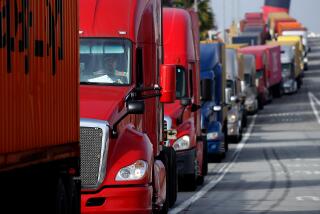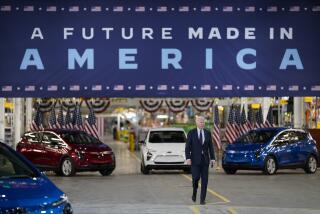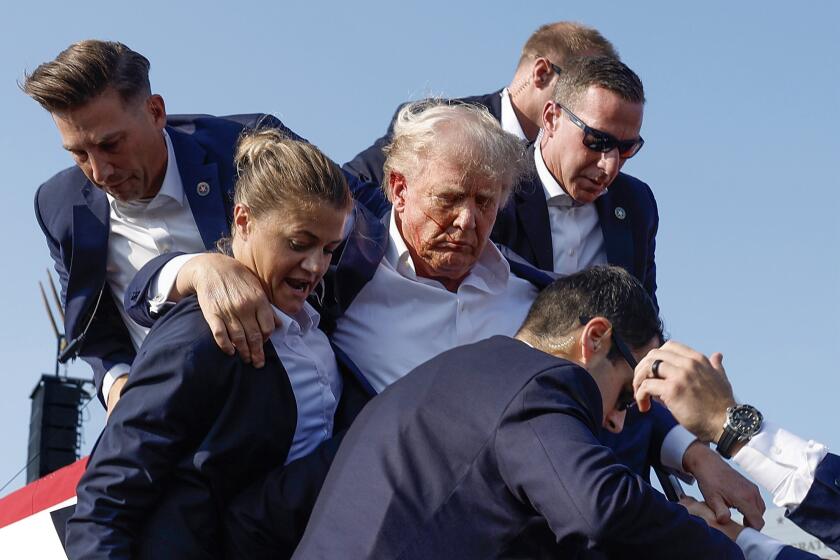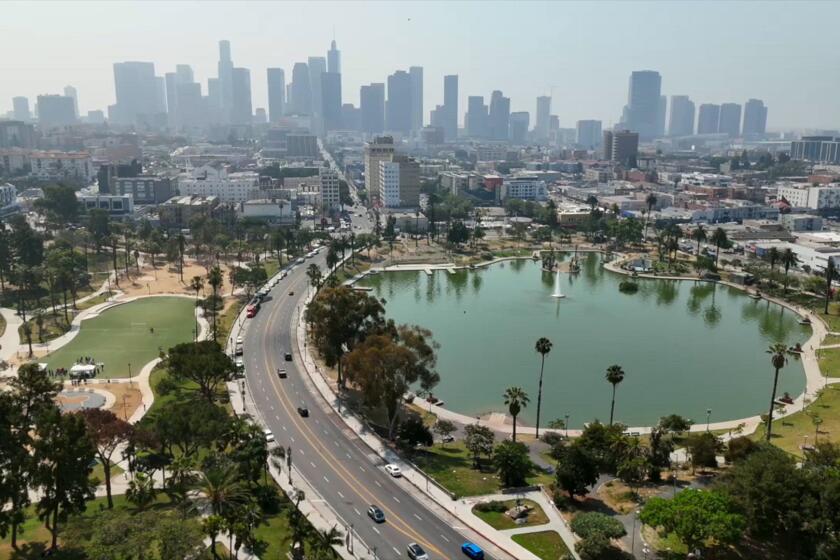Editorial: Even car companies aren’t going along with Trump’s rollback of mileage and emissions standards
President Trump is hellbent on rolling back the nation’s fight against climate change. But he’s increasingly going it alone.
Even some of the companies whose water he’s eager to carry aren’t interested in his help.
On Thursday, four of the world’s largest automakers announced they will, in effect, ignore the Trump administration’s plan to relax fuel economy and greenhouse gas emissions standards. Instead, the companies sided with California in the federal-state standoff over clean-car standards, and said they will voluntarily make their vehicles more fuel efficient.
Gov. Gavin Newsom said he is confident the agreement with Ford, Honda, Volkswagen and BMW — which together sell about 30% of all vehicles in the U.S. — will prompt other automakers to follow suit.
We hope so too — and, if it’s not too much to wish for, that a chagrined Trump administration drops its reckless efforts to undo desperately needed environmental regulations. The world is already feeling the effects of global warming in more extreme weather events, from prolonged droughts, endless wildfire seasons and unprecedented heat waves to severe hurricanes and floods. Cars and trucks are the nation’s largest source of greenhouse gas emissions; the U.S. cannot do its part to slow climate change without cleaner cars.
To get a deal, California compromised a bit. The four carmakers will meet a slightly weaker standard than originally set by the Obama administration, but one that is still much more aggressive than the proposed Trump rollback. Under the Obama regulations, carmakers would have had to sell cars and trucks that average more than 50 miles per gallon by 2025. The California compromise gives the carmakers an extra year to meet that target. The Trump administration has proposed freezing average vehicle fuel economy standards at the 2020 level, which is about 37 miles per gallon for cars.
The industry initially lobbied the Trump administration to weaken the fuel economy standards. Why have they changed their stance? Regulatory certainty is one reason. Car companies plan their fleets years in advance and don’t want to sell different cars to meet different standards state by state. California has been threatening to adopt its own clean-car regulations for vehicles sold here and in 13 other states that have committed to also enact its standards; by coming to the table, the companies were able to negotiate on some key points.
Car companies want the certainty of one national standard. The Trump administration has a losing record so far in trying to weaken environmental rules and it used questionable science to justify rolling back the fuel-economy standards. Siding with California is a safer bet.
It’s also a better business bet. While Trump is encouraging companies to keep pumping out gas guzzlers, many of the world’s leading economies are demanding innovative clean-car technology. China, the world’s largest auto market, plans to ban the sale of new vehicles powered by gasoline or diesel in the coming decades. France, Britain, Norway and India have also pledged to phase out fossil-fuel vehicles.
The world is speeding toward a future of clean, zero-emissions cars, whether the Trump administration likes it or not.
More to Read
A cure for the common opinion
Get thought-provoking perspectives with our weekly newsletter.
You may occasionally receive promotional content from the Los Angeles Times.






